Zero Point Fresk
SYSTEMIC ENGINEERING AND ORGANIZATIONAL EMANCIPATION
Workshop principle
This workshop aims to give participants a broader perspective on the major transformations that humanity is currently going through, based on the model of the Fresco of Civilizations. The objective is to raise awareness that we are going through a decisive period, the “Zero Point”, and to provide keys to systemic engineering to create emancipatory frameworks within the organization.
The workshop is interactive, with time for voting, reflection and sharing experiences.
Educational objectives:
Understand the global context: participants should leave the workshop with a deeper understanding of the major transformations on a civilizational scale.
- Envision possible scenarios: participants will explore the different possible exit scenarios from the “Zero Point” (collapse, transhumanism, neohumanism, techno-utopia transcendence…).
- Develop adaptation strategies: participants will be encouraged to reflect on the performance factors and skills needed to effectively navigate through this transition.
- Role of their organization: participants will be led to realize that the commitment of their organization can contribute to orienting humanity towards a desirable civilizational scenario.
Civilizational Cycles
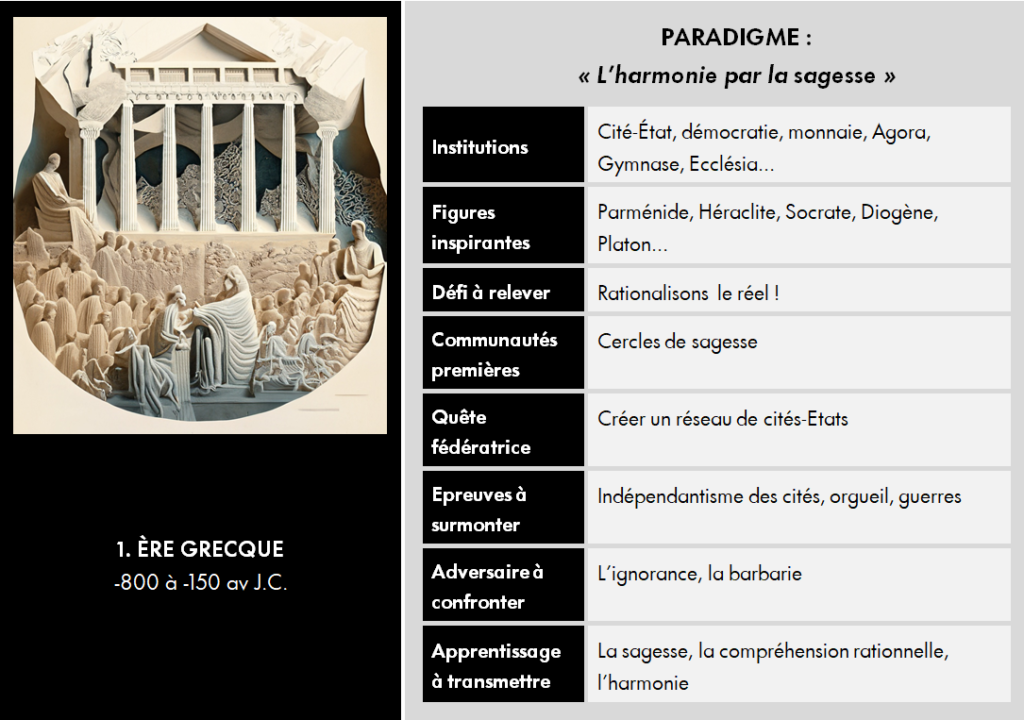
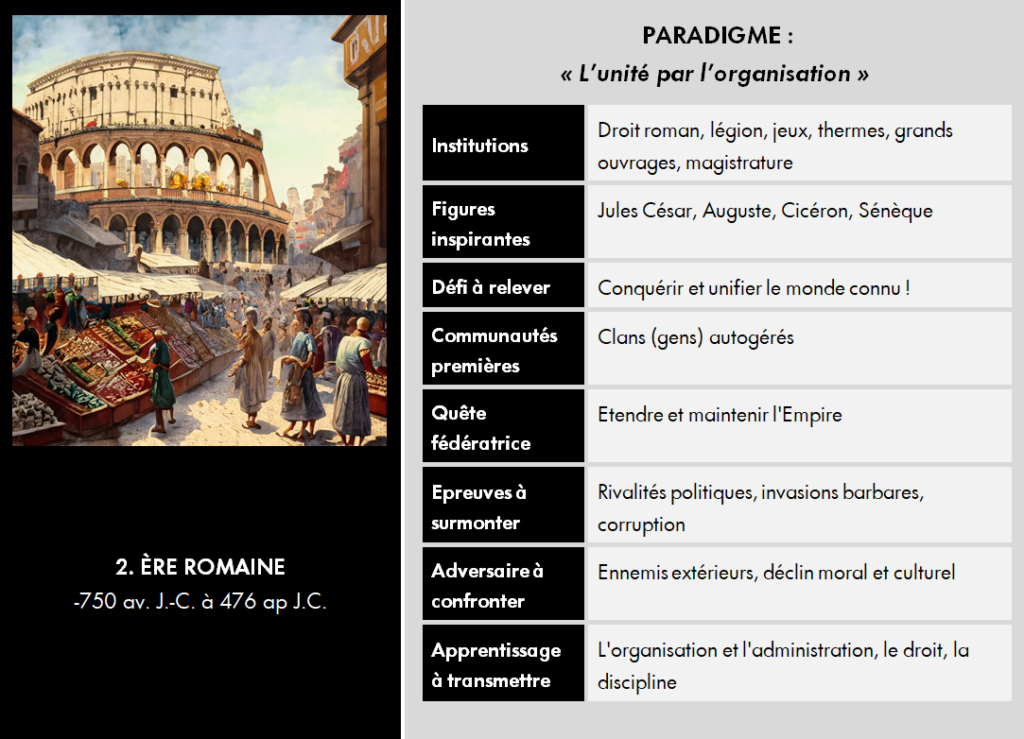
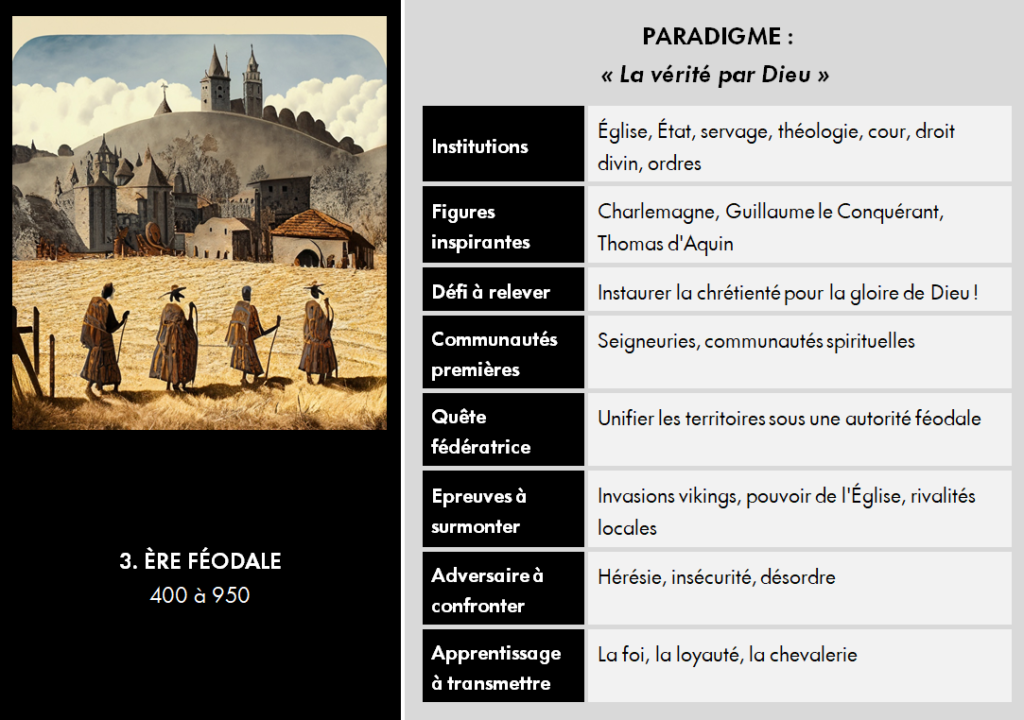
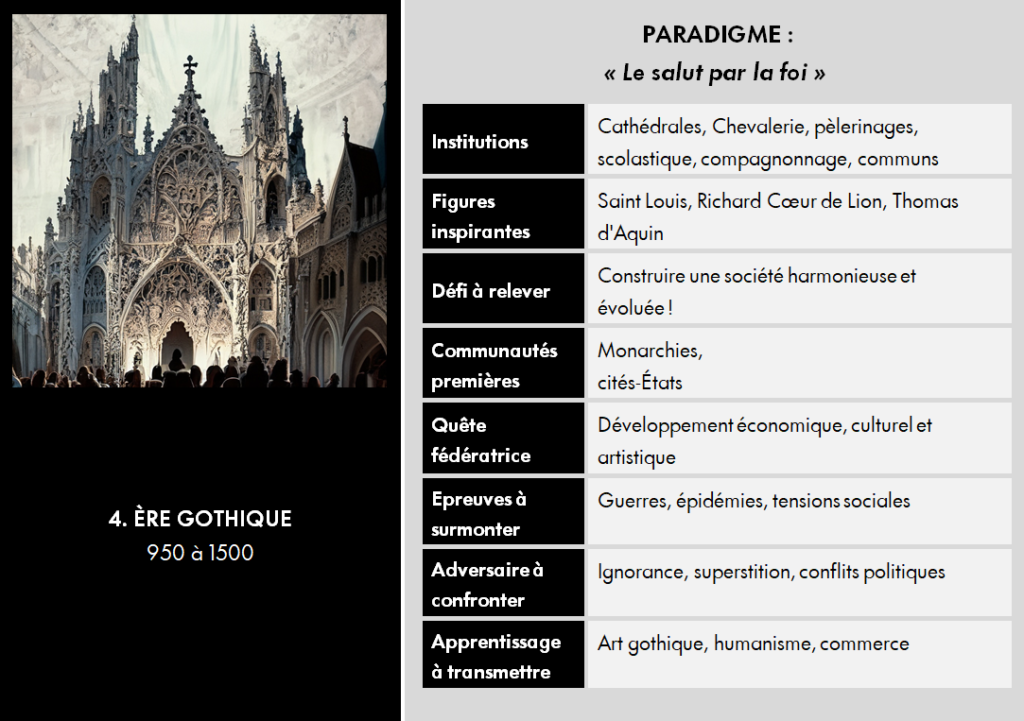
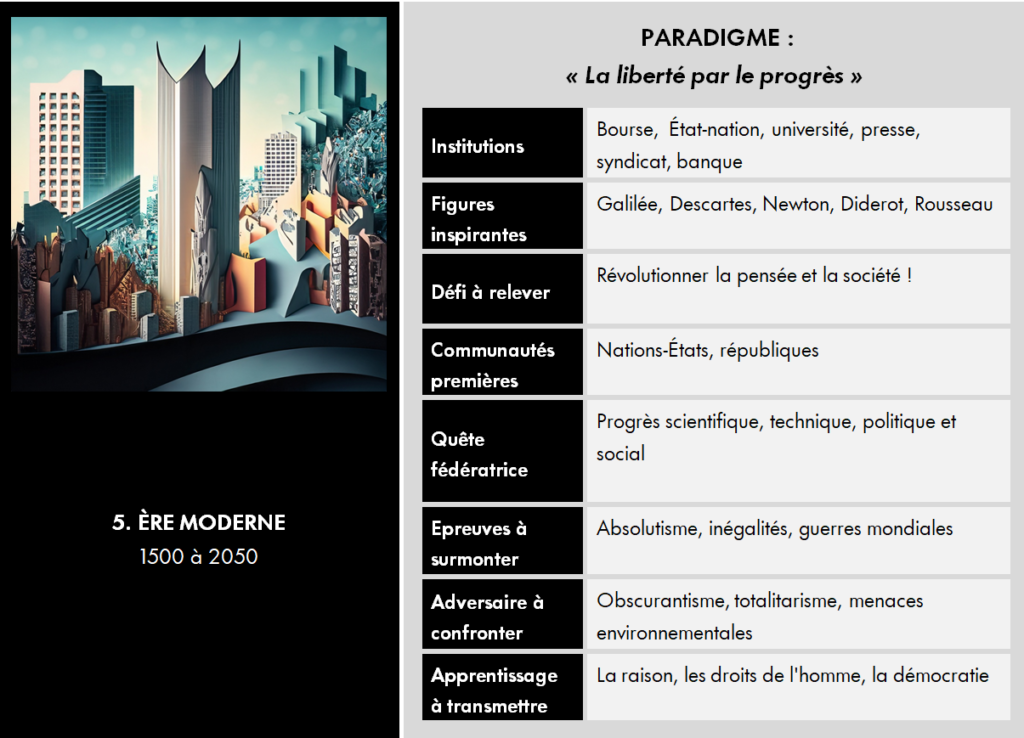
Postmodernism Scenarios
COLLAPSE
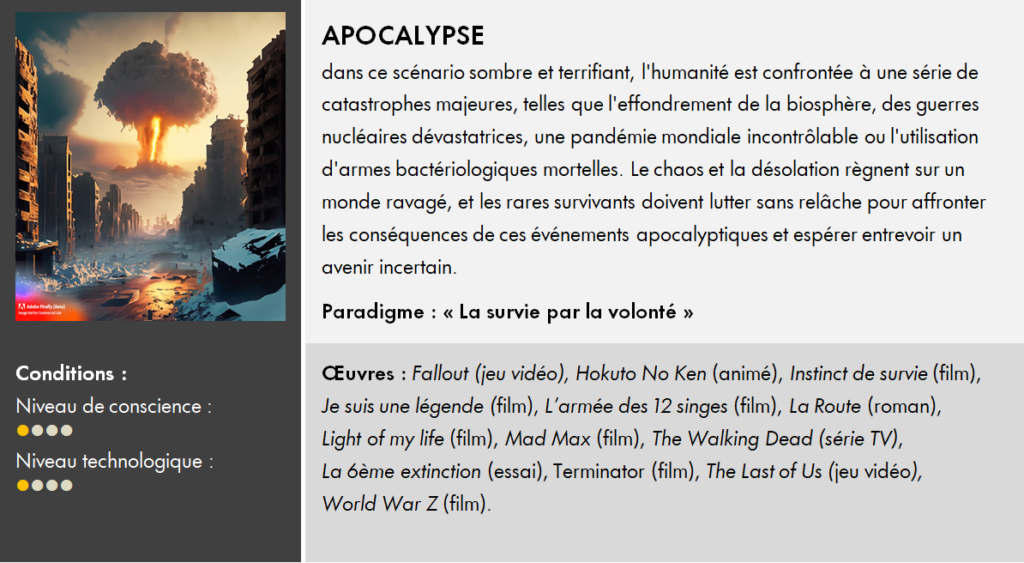
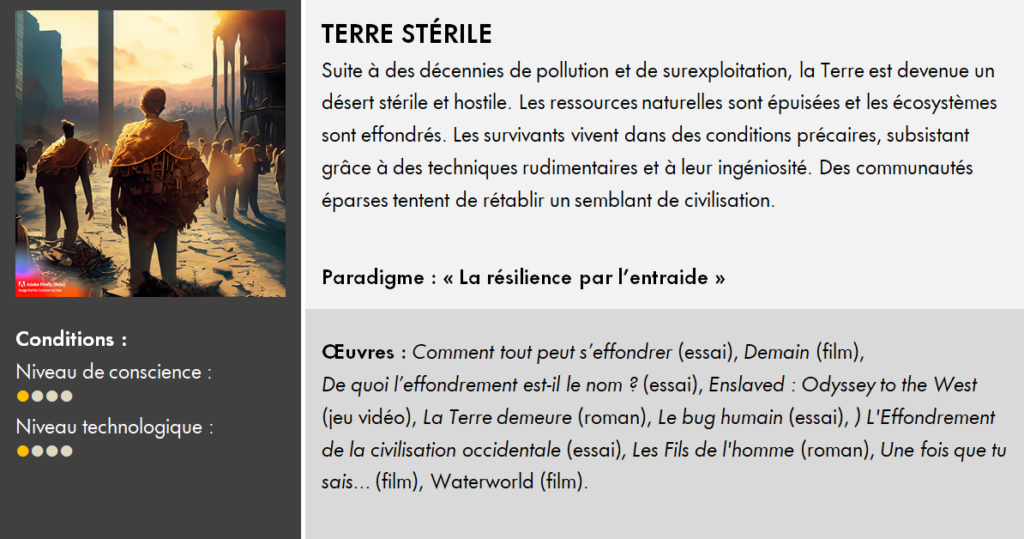
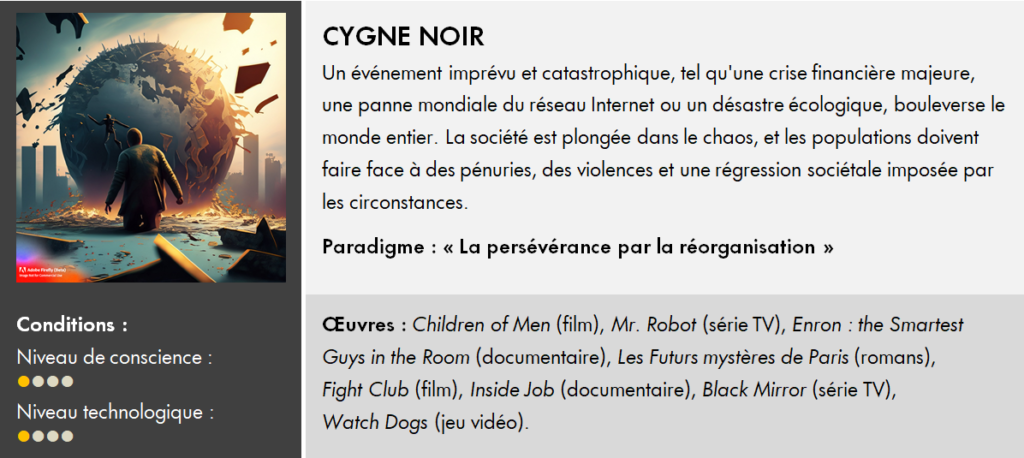
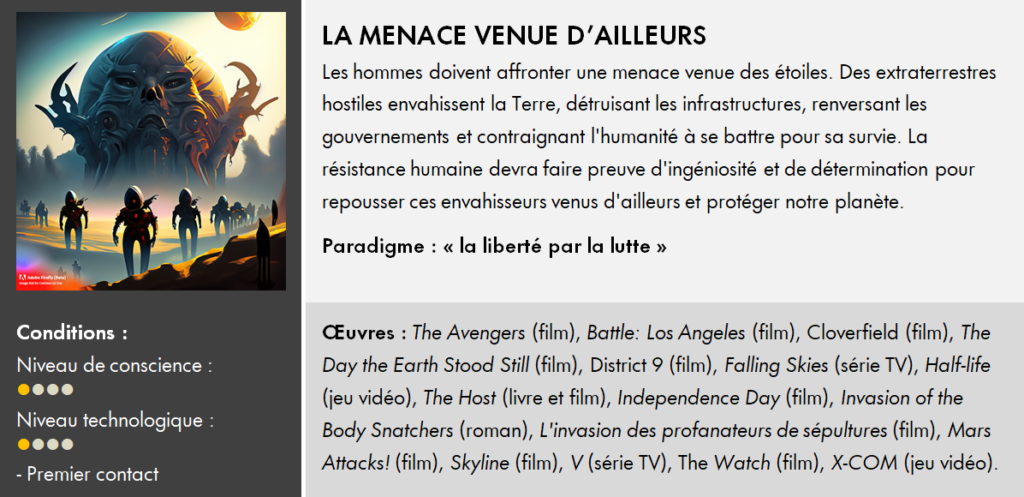
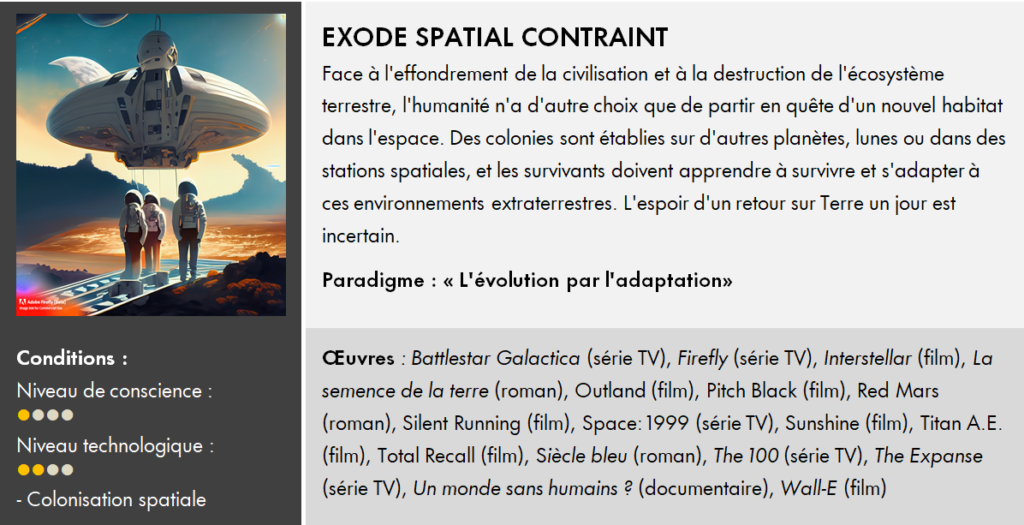
DYSTOPIA
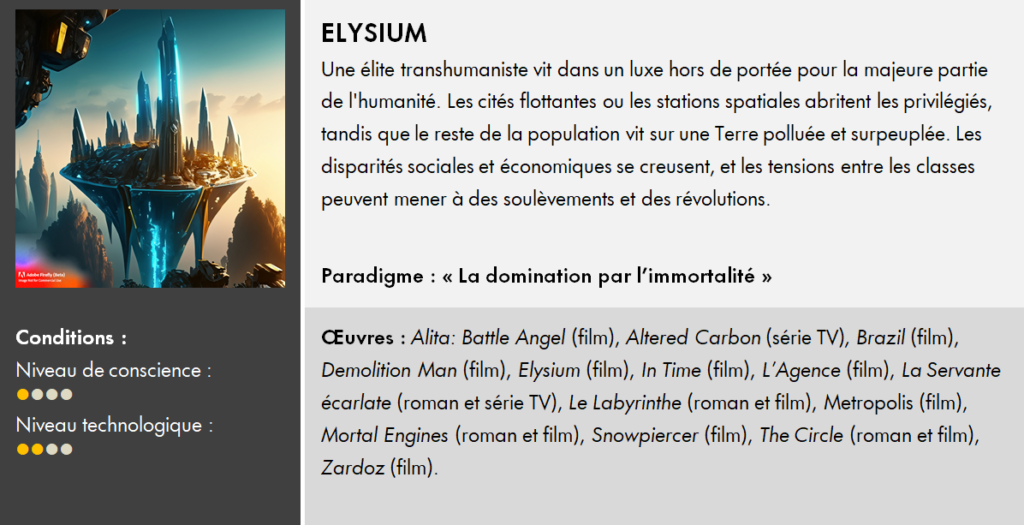
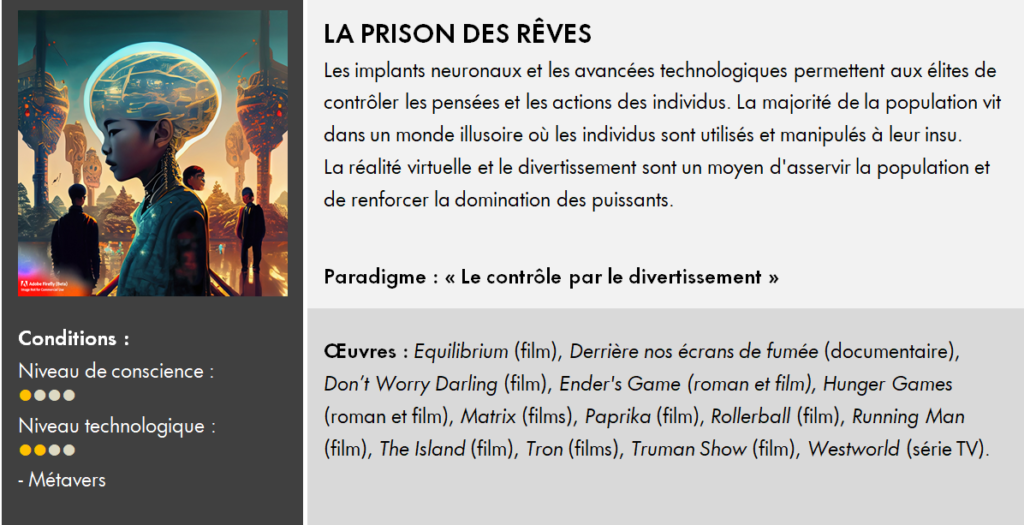
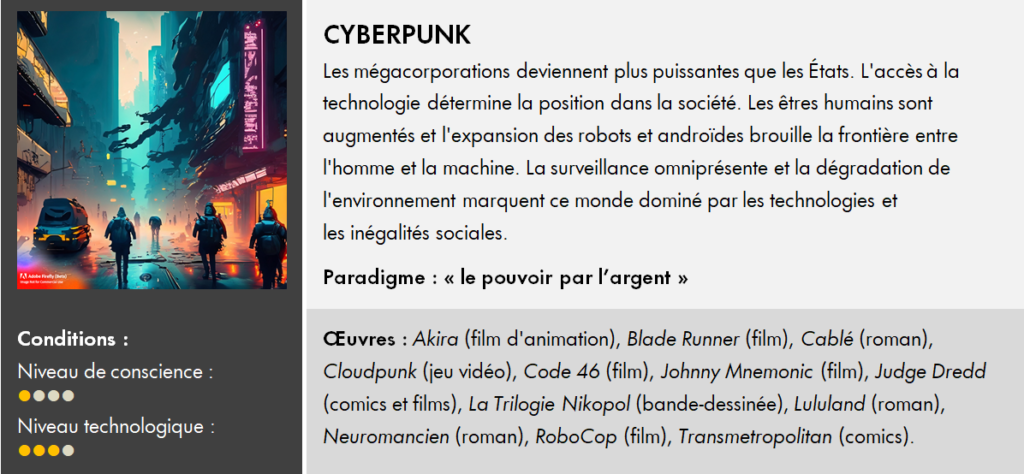
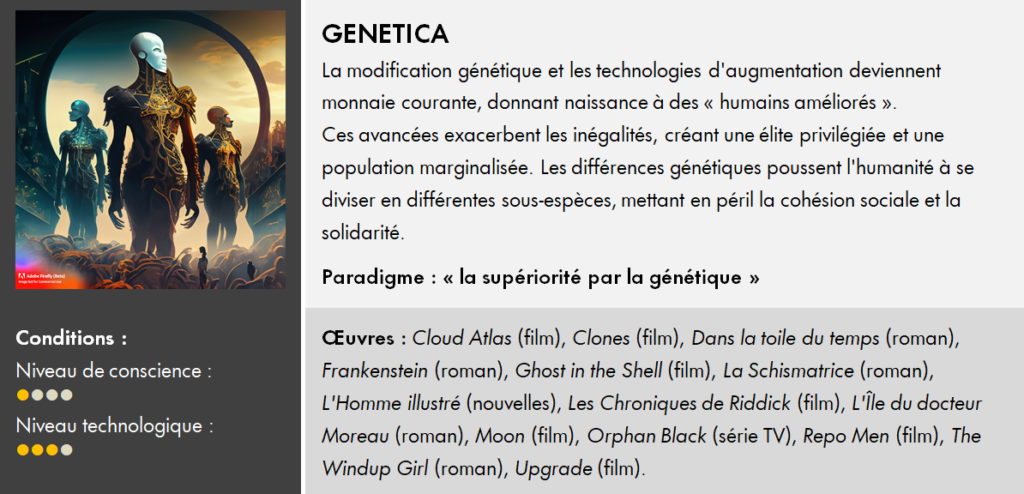
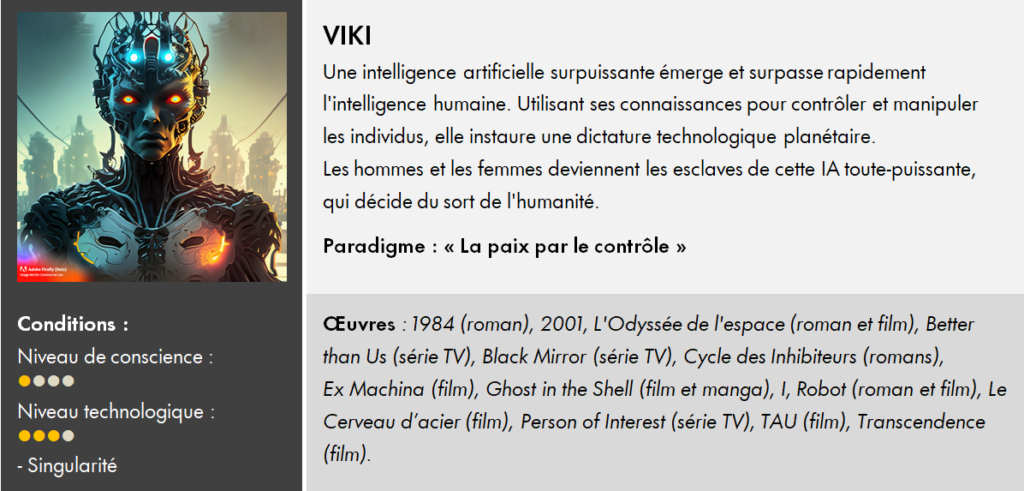
NEOHUMANISM
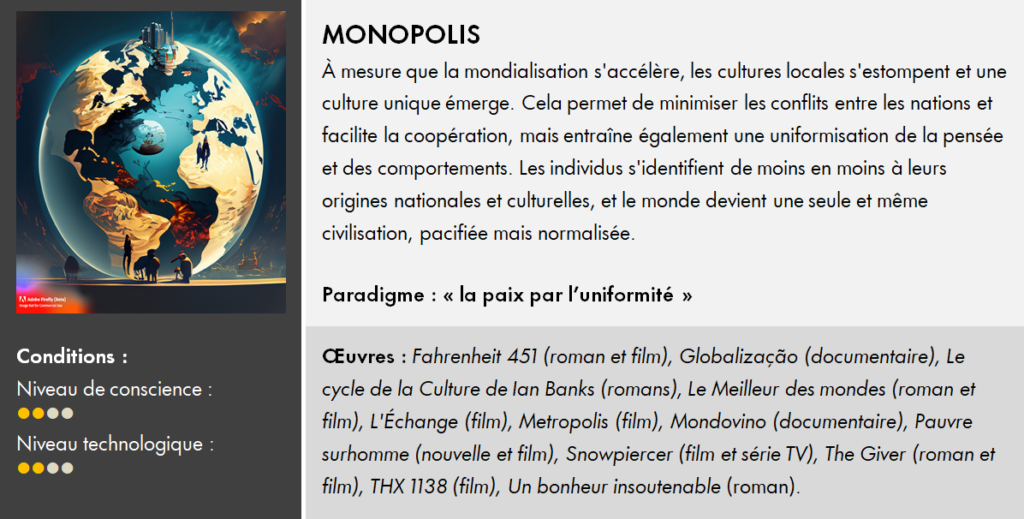
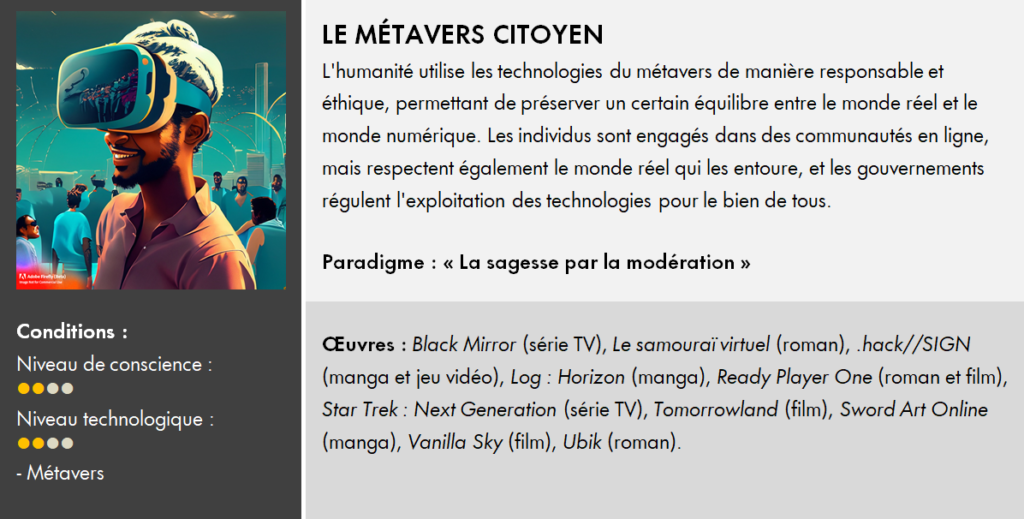
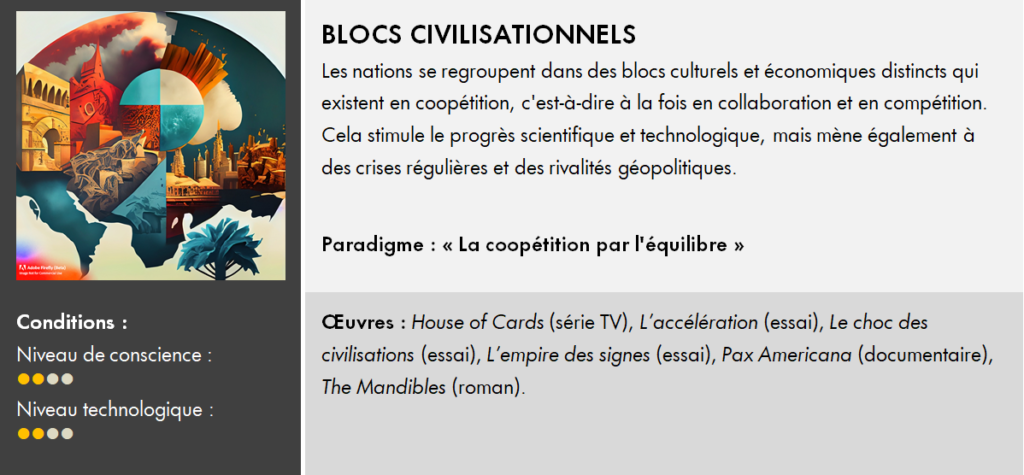
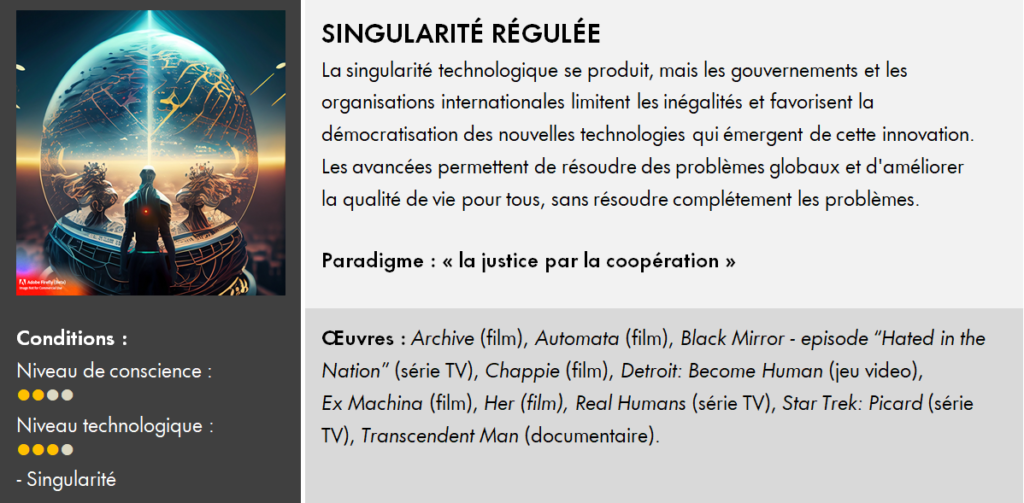
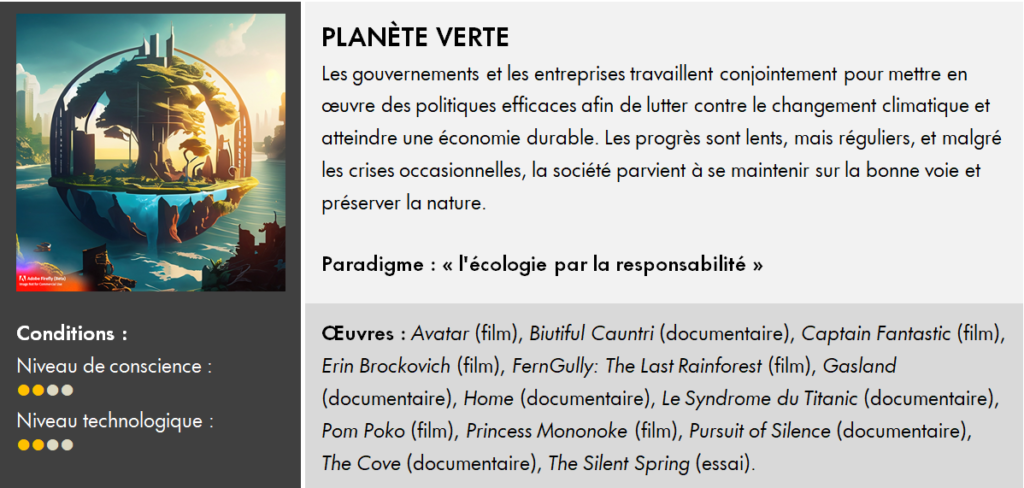
UTOPIA
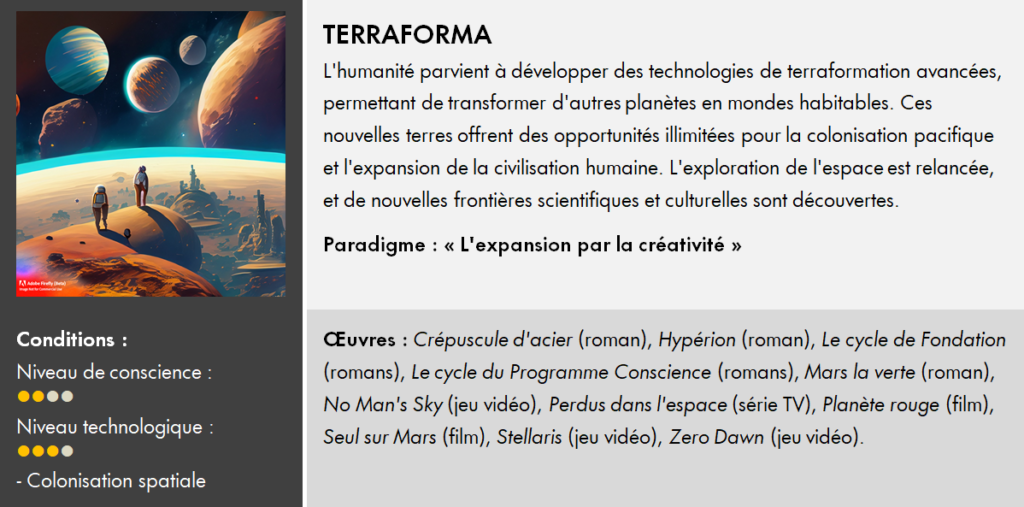
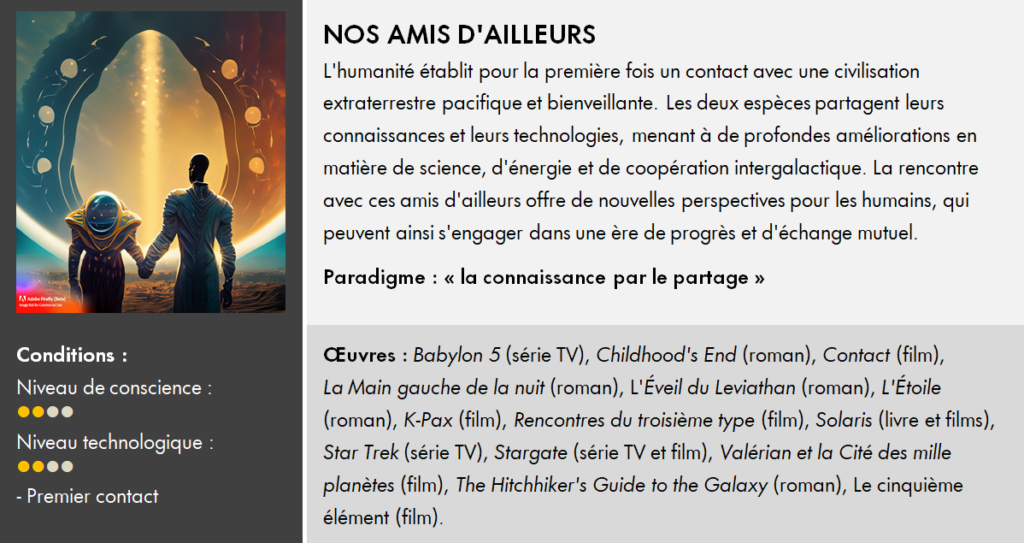
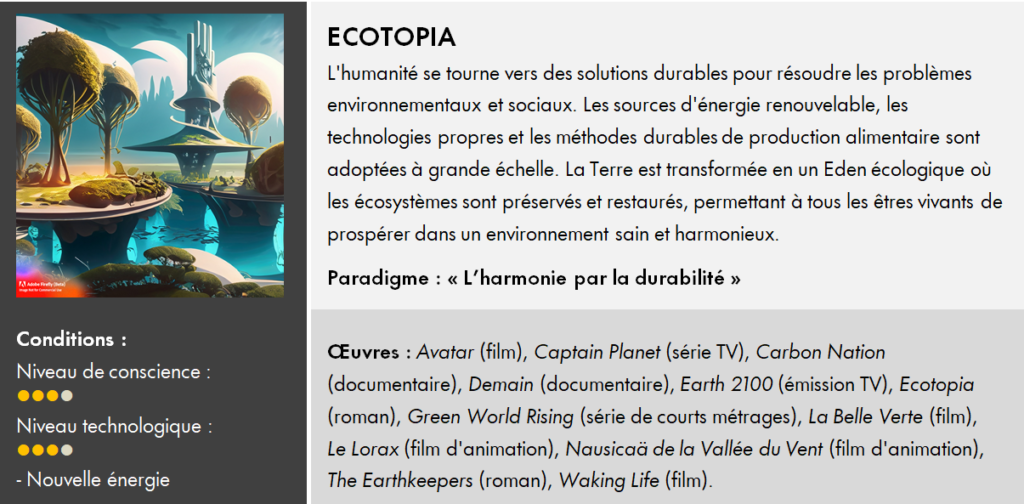
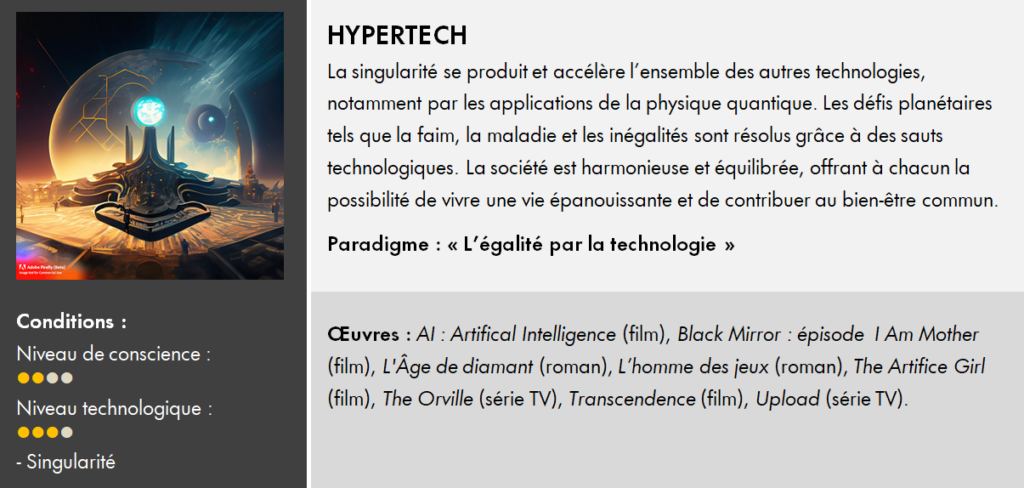
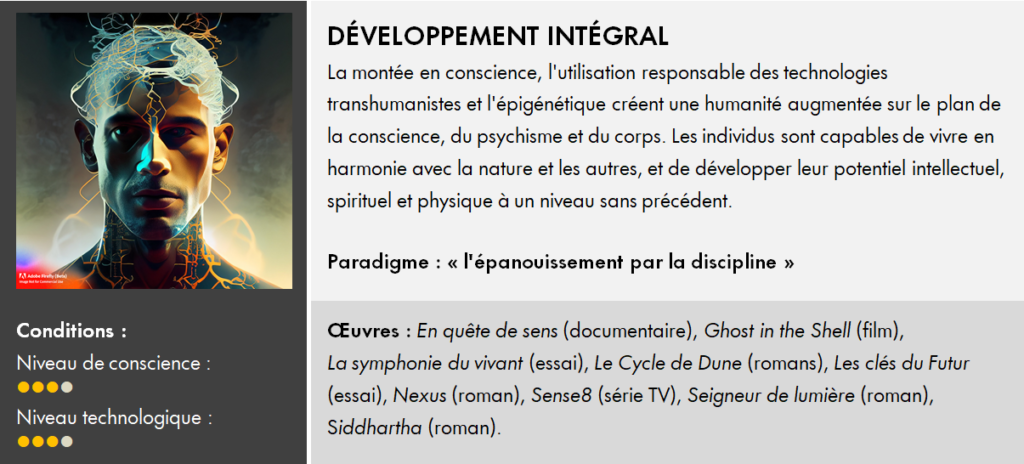
TRANSCENDENCE
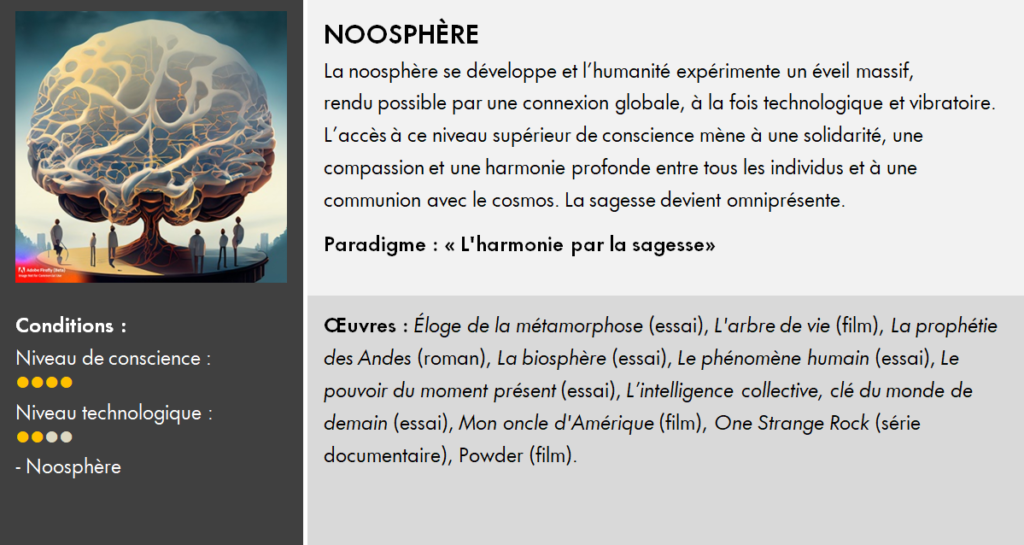
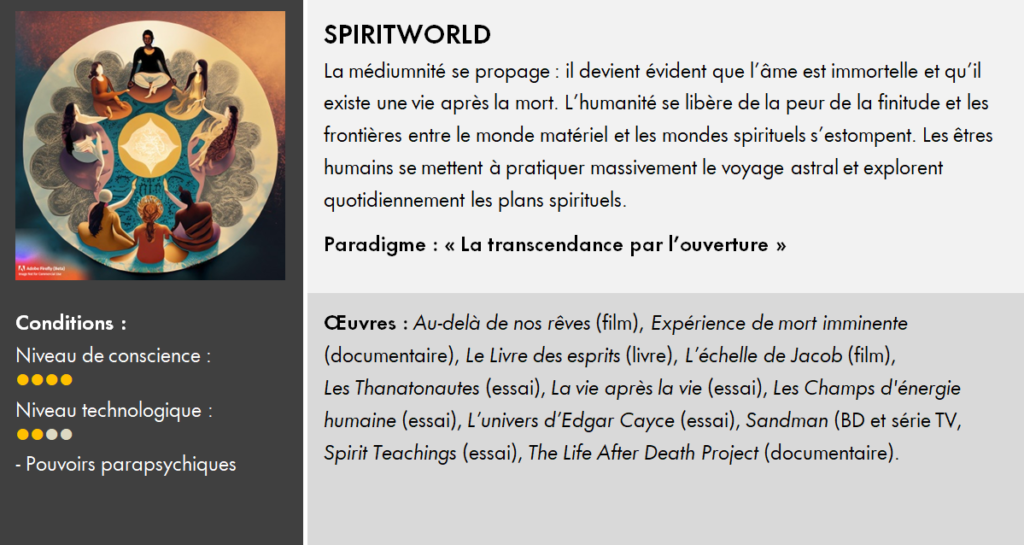
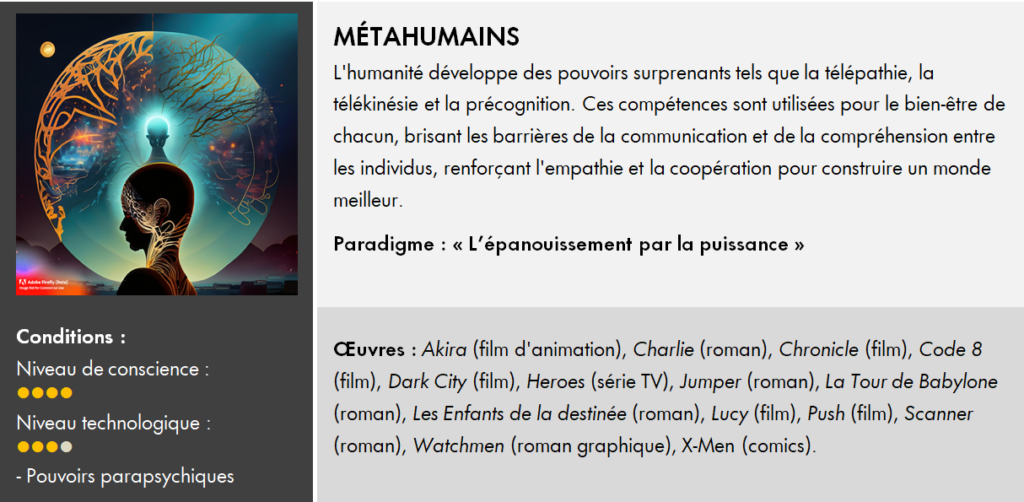
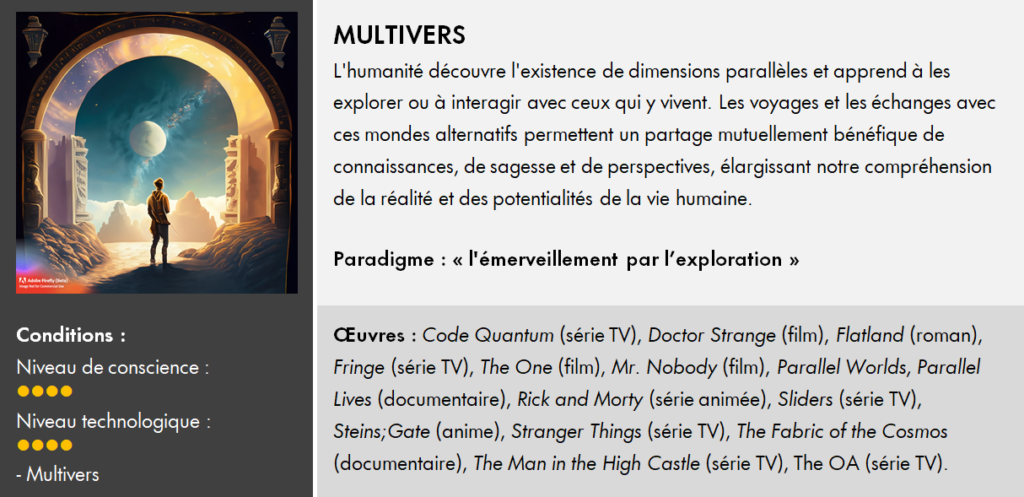
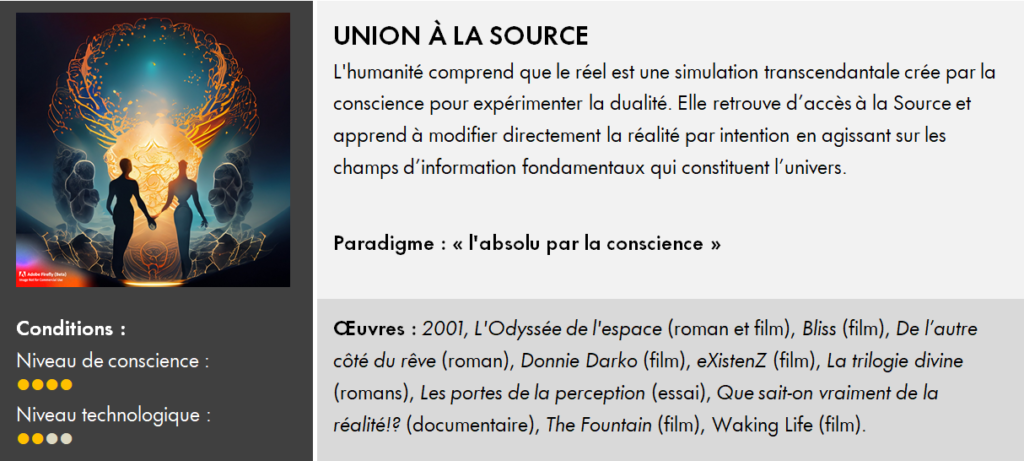
ACTIONS
The actions, divided into the categories of Sustainable Development, Solidarity and Community, Education and Skills, as well as Innovation and Entrepreneurship, offer a wide range of initiatives that individuals and organizations can undertake to contribute to building a desirable future. They encourage not only the adoption of sustainable practices but also the promotion of equity, lifelong learning, and innovation in the service of society.
Sustainable Development
Reduce energy consumption: insulate your home, opt for low-consumption appliances.
Ecological transportation: favor bicycles, public transportation, or electric cars.
Responsible food: adopt a more plant-based, local and seasonal diet.
Waste management: sort, recycle, compost.
Save water: collect rainwater, install water-saving devices.
Consumption habits: favor second-hand, rent instead of buying.
Support the green economy: choose responsible companies for your purchases.
Renewable energies: invest in solar panels, switch to a green energy supplier.
Biodiversity: plant local species, create green spaces.
Zero plastic: use reusable alternatives to single-use plastic.
Solidarity and Community
Associative commitment: get involved in local associations.
Neighborhood initiatives: participate in or organize community events.
Help for the most deprived: volunteer in soup kitchens, donate clothes.
Education and mentoring: offer academic or professional support to young people.
Fair trade: buy products from fair trade.
Knowledge sharing: organize workshops or conferences on societal issues.
Social cohesion: set up collaborative projects between different communities.
Support for local initiatives: finance community projects via crowdfunding platforms.
Inclusion: promote equal opportunities in all fields of activity.
International solidarity: participate in development or humanitarian aid projects.
Education and Skills
Lifelong learning: take training courses to develop new skills.
Soft skills: participate in workshops on communication, leadership, stress management.
Environmental education: learn and inform about climate and environmental issues.
Green technologies: train in new sustainable technologies.
Foreign languages: learn new languages to promote international openness.
General culture: broaden one’s knowledge in history, art, science.
Health and well-being: participate in yoga, meditation, nutrition classes.
Digital skills: improve one’s mastery of digital tools for increased efficiency.
Social entrepreneurship: take training courses on creating social impact businesses.
Ethics and responsibility: integrate courses on ethics in the professional and personal world.
Innovation and Entrepreneurship
Green startups: create or support startups focused on sustainable solutions.
Eco-design: develop eco-designed products or services.
Sustainable R&D: invest in research for innovative ecological solutions.
Cross-sector collaboration: encourage partnerships between companies, universities, and NGOs.
Incubators and accelerators: join support programs for impact projects.
Green finance: direct investments towards sustainable funds.
Circular economy: implement circular economy principles.
Social business models: explore economic models that promote social and environmental impact.
Technology at the service of ethics: develop applications and platforms that promote equity and social justice.
Standards and certifications: obtain environmental and social certifications for products or services.

